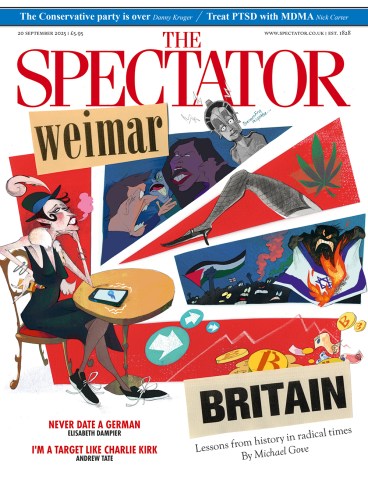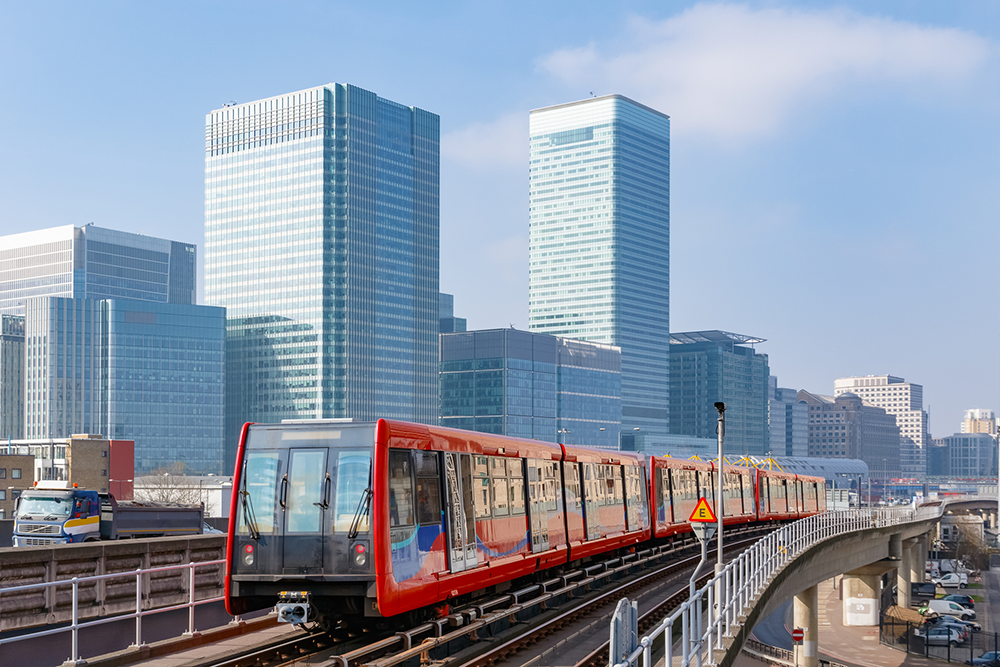
I awoke on Sunday to what felt like a Brave New World moment: Radio 4’s news-reader reciting an unedited Downing Street script for Donald Trump’s visit, about US financial firms (mostly Citigroup, in fact) agreeing to invest £1.2 billion over here to create 1,800 jobs. Or some such propaganda, the Financial Times having already set the tone with ‘Rush for deals ahead of Trump trip – tech, nuclear and whisky on table’. As the President packed his best leisurewear for Windsor Castle, news followed of £5 billion from Google for UK-based AI services; and finally, even bigger bucks from Microsoft.
All to the good if pledges turn into realities and AI doesn’t knock out those new jobs in financial services. Call me a sceptic, but balanced bulletins might also have catalogued the very real decline of inward investment in a sector in which the UK is supposed to have proven strengths, namely the pharmaceutical industry.
‘Life sciences’, including drug development, are a pillar of the Labour government’s so-called industrial strategy. But the US drugmaker Merck has just cancelled a £1 billion research facility at King’s Cross in London, having declared the UK no longer ‘internationally competitive’, while the Anglo-Swedish multinational AstraZeneca is ‘pausing’ a £200 million laboratory in Cambridge, having already scrapped a £450 million vaccine plant in Liverpool. Eli Lilly and Bristol Myers Squibb of the US and Sanofi of France are also reported to be holding back previous plans.
All this reflects NHS reluctance to pay up for innovative drugs as well as broader disillusionment with the UK as a science base, combined with Trump’s tariffs designed to pull industrial activity and cheaper drugs towards the US. One thing it doesn’t reflect is the ‘enduring golden corridor’ of UK-US trade that was trumpeted by the new Business Secretary, Peter Kyle, as Air Force One took off. If realpolitik dictates we must hail the Great Dealmaker this week and toady to his Big Tech entourage, so be it. Big Pharma is telling us a different story.
Anti-hacker tactics
The scariest story of the month is the cyber-attack that has shut down Jaguar Land Rover, causing losses to the company of £50 million a week and threatening to bankrupt many of its smaller suppliers. JLR hopes to restart next week but some experts think full production may not resume until November.
Who in the world has motive for such vandalism? Russia, for the hell of it? Elon Musk, trying to regain ground for Tesla? China, out to cripple western marques in order to sell more of its own crappy electric cars? No, apparently this is the work of an anarchic network of British and American teenagers including Scattered Spider, the group that claimed responsibility for the recent attack on Marks & Spencer. Parents, if your kids have turned shifty and started spouting impenetrable hacker jargon, it’s time to burst into dank bedrooms and confiscate those terminals, or redirect them to relatively harmless porn.
Better billionaires
Larry Ellison, the 81-year-old Oracle software tycoon who has overtaken Elon Musk as the world’s richest person, has been called ‘the samurai warrior of Silicon Valley’, a label that reflects his passion for Japanese culture as well as his ruthlessness in competition. With a fortune approaching $400 billion (recently inflated by an AI-related spike in Oracle’s share price), he owns trophies ranging from a military fighter jet to a Hawaiian island; he was an eager early visitor to the Trump White House and is, or was, a close friend of Musk. One way or another, probably not a guy you’d like to meet for a ruminative pint in a pub.
But think again: Ellison has just bought Oxford’s historic Eagle and Child hostelry, where J.R.R. Tolkien and C.S. Lewis used to drink, as an adjunct to a £130 million investment in an alliance between his Ellison Institute of Technology and Oxford University to tackle ‘humane endeavours’ such as sustainable agriculture, clean energy and state uses of AI. How fortunate, despite the wider malaise of UK higher education, that billionaires still queue to attach their names and wealth to our prestigious universities – Ellison joining Oxford’s procession behind the metal-trading Reuben brothers, Stephen Schwarzman of the Blackstone investment giant and the Ukrainian-born Sir Len Blavatnik. And how much better that freak fortunes generated by tech-crazed stock markets should be diverted towards research for good – rather than fertilising, as in Musk’s case, the megalomaniac paranoia of his video rant to the Tommy Robinson rally.
Bring on more robots
Mayor Sir Sadiq Khan continues to rule out the possibility of a fully driverless London Underground, on the declared grounds that it would cost at least £7 billion and probably much more. He made that call even though much of the network is already automated (cab occupants merely operating doors and standing by for emergencies), the Docklands Light Railway has been remotely run since its inception in 1987 and there are driverless models in modern cities across the world. The truth, of course, is that Khan is in thrall to Luddite hard-left unions.
But the prime movers of last week’s strike – estimated to have cost £230 million, much of it falling on hard-pressed hospitality businesses – were not drivers who are Aslef members but station and depot staff represented by the Rail, Maritime and Transport union, who were rewarded by Khan with an instant 3.4 per cent no-strings-attached pay offer. And if we accept that automating every moving train could turn into the sort of tech fiasco that delayed the Elizabeth line for several years, wouldn’t it be cheaper and simpler to replace troublesome RMT staff with ultra-polite, all-seeing humanoid robots and holograms? They might be voiced by Stephen Fry and Joanna Lumley but we’d hear no more demands for a 32-hour working week with lavish additional perks. If that’s what the magic of AI can deliver, bring it on.








Comments